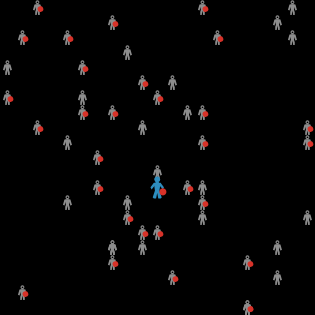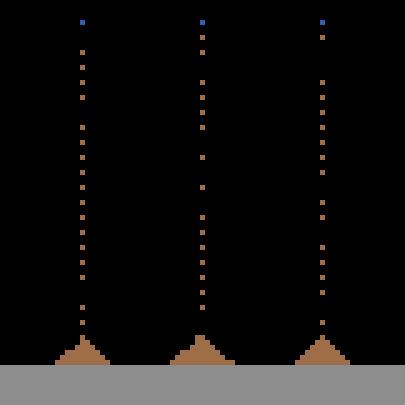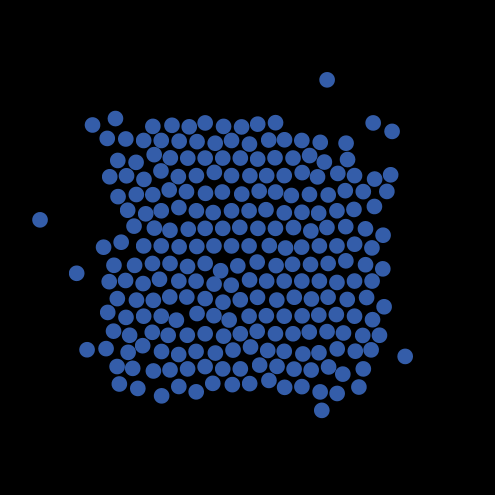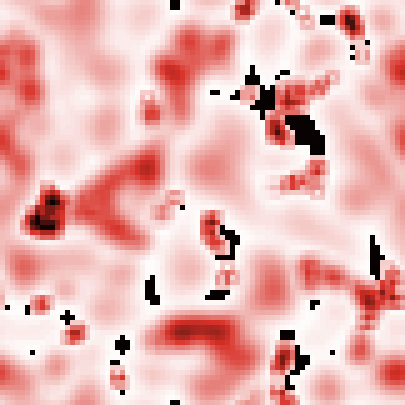let
let creates a new local variable and sets its initial value. A local variable is a variable that only exists within the procedure it was created in or within the brackets of a specific ask statement. Similar to a global variable, a local variable's value is the same for all the turtles.
ask turtles [
let people-nearby (other turtles in-radius 2)
if any? people-nearby [
let new-friend one-of people-nearby
set my-friends (lput new-friend my-friends)
]
]
Once you create a local variable with let, you can then use the set primitive to assign it a new value. let is very useful for calculating temporary values or creating temporary agentsets. For example, if we wanted a turtle to roll 6 dices and report the sum of the dices, we could use let as shown below:
to-report roll-six
let total-outcome 0
repeat 6 [
let new-outcome (one-of [1 2 3 4 5 6])
set total-outcome (total-outcome + new-outcome)
]
report total-outcome
end
In the model example below, we have some happy and some sad turtles. Every time two turtles are on the same patch, one turtle will ask the other to change its shape. Two situations might occcur: either a sad turtle will make its friend sad or a happy turtle will make its friend happy. We use let in this model because it allows us to not rewrite a longer piece of code again and again (other turtles-here).
Try it Yourself
What's next?
Once you mastered the let primitive, don't stop there. Check out the resources below to improve your NetLogo skills.
Published NetLogo models that use the let primitive:
Similar primitives:
turtles-own
Declare a variable that belongs to turtles.
patches-own
Defines custom characteristics (variables) for patches. Each custom characteristic can have a different value for each patch.



